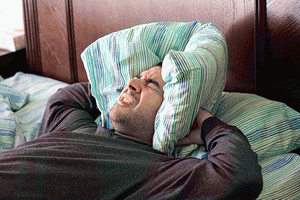 Insomnia is a sleep disorder whereby people have difficulty falling and/or staying asleep.
Insomnia is a sleep disorder whereby people have difficulty falling and/or staying asleep.
This differs from sleep apnea, which is a disorder that affects your breathing and subsequently, causes your breathing to stop and start. Dr. Robert Gaerlick, a sleep apnea specialist in Long Island, NY provides a very good explanation of the disorder if you’d like to learn more.
People with insomnia have one or more of the following symptoms:
-
- Difficulty falling asleep
- Waking up often during the night and having trouble going back to sleep
- Waking up too early in the morning
- Feeling tired when waking up
While there are many methods available to combat insomnia, a recent study points to one specific recommendation.
A recent AP report cited new guidelines issued by the American College of Physicians in the Annals of Internal Medicine stating “… the first choice to treat chronic insomnia should be cognitive behavioral therapy [CBT].”
The group “said Monday the method known as CBT can be effective and doesn’t carry the side effects of medication, a recommendation intended to spur primary care” physicians to prescribe the therapy. They stated that if CBT is not effective for any particular individual, then physicians could consider prescribing medication.
The CBT recommended for people with insomnia is called CBT-I, “which blends talk therapy and sleep tutorials, and has been shown to help a majority of patients recover some normalcy in their sleep quality and duration.” The therapy “requires a trained clinician,” however, “of which there are few in even the country’s biggest cities.”
The NBC News website reported that in putting together the guidelines, “a team at the organization looked at research on insomnia and at an evidence review by the Agency for Healthcare Research and Quality.”
There are also some foods you should eat and others you should not eat if you have sleep apnea. Fruits and vegetables and whole grains are recommended. For a more complete list of foods for/against sleep apnea, click here.
